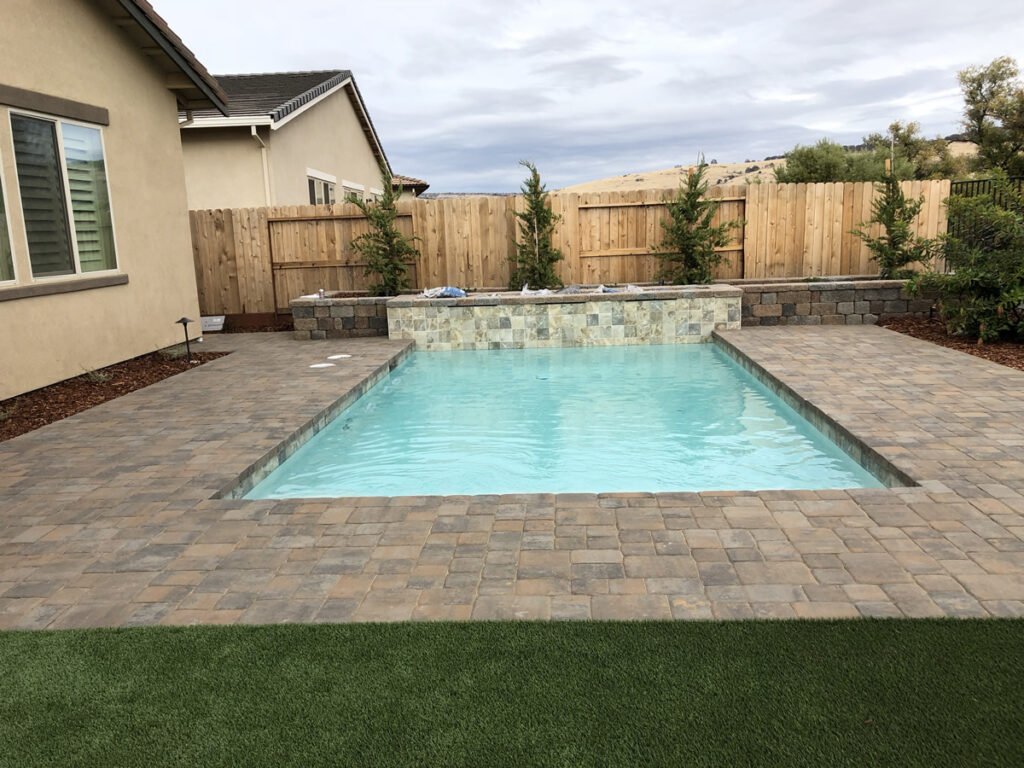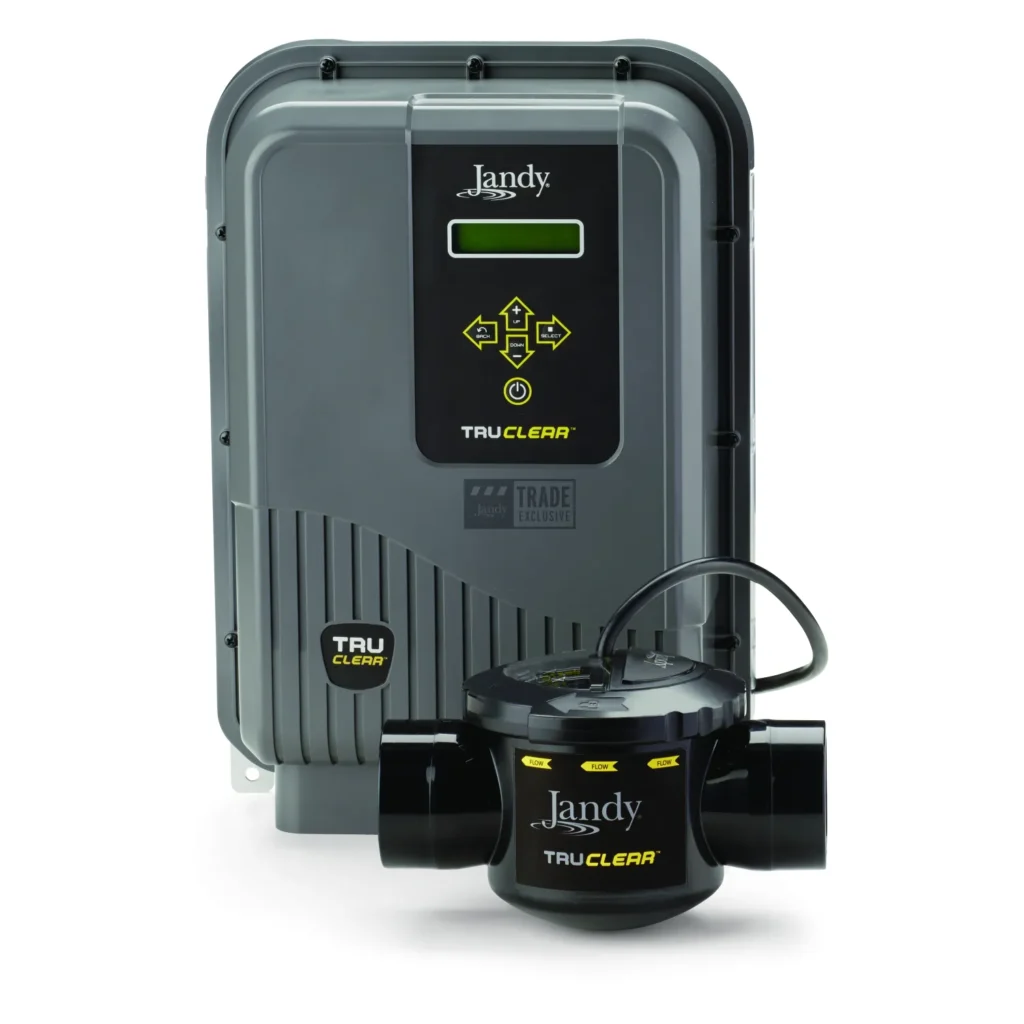
The dream of a refreshing dip in your own pool on a hot summer day. But before you dive into the world of pool ownership, a crucial decision awaits: saltwater or chlorine? Both systems have their pros and cons, and the perfect choice depends on your lifestyle, priorities, and budget. Let’s understand their differences and make informed decisions
The Truth of Saltwater Pools in Sacramento, CA
Saltwater pools have surged in popularity in recent years. Here’s why:
- Softer Feel: Saltwater pools utilize a chlorine generator that converts dissolved salt into a low chlorine level. This gentler form of chlorine is less harsh on eyes, skin, and hair, especially for those with sensitivities.
- Reduced Chemical Maintenance: Saltwater systems continuously generate chlorine, minimizing the need for frequent chemical additions. This translates to less time spent managing pool maintenance and more time enjoying your backyard oasis.
- Environmentally Friendly: While saltwater pools still use chlorine, the lower overall amount required makes them seem more eco-friendly to some. Additionally, salt is a natural mineral, and excess can simply be washed away with rain or pool water replacement.
However, saltwater systems aren’t without their drawbacks:
- Higher Upfront Cost: Installing a saltwater system typically carries a higher initial cost than a traditional chlorine system.
- Maintenance Needs: Saltwater generators require periodic cleaning and may need to be replaced every few years. While less frequent than chlorine adjustments, this adds another layer of maintenance.
- Corrosion Concerns: Saltwater can be corrosive to certain pool components, such as metal ladders, handrails, and heaters. Choosing saltwater-resistant materials or adding sacrificial anodes for corrosion protection can mitigate this risk, but it’s a factor to consider.
The Ever-Reliable Chlorine Pool
Chlorine pools have been the go-to pool sanitation method for the following reasons:
- Cost-Effective: Traditional chlorine systems are generally less expensive to install upfront than saltwater systems. Chlorine tablets or liquid chlorine are readily available and relatively inexpensive.
- Simple Maintenance: Maintaining a chlorine pool is straightforward. Regular testing and chlorine level adjustments are essential, but the process is well-established and requires minimal technical expertise.
- Fast-Acting Disinfection: Chlorine is a powerful disinfectant that can quickly eliminate bacteria and algae in your pool water. This can be particularly beneficial if you live in a warm climate or have frequent pool users.
However, chlorine pools also have some downsides:
- Harsh Chemicals: Traditional chlorine can be harsh on eyes, skin, and hair, especially for those with sensitivities. The chlorine odor can also be unpleasant for some swimmers.
- Frequent Maintenance: To maintain proper sanitation, chlorine levels need to be monitored and adjusted regularly. This can be a time-consuming aspect of pool upkeep.
- Safety Concerns: Improper chlorine handling can lead to skin irritation or respiratory problems. It’s crucial to store chlorine safely and follow handling instructions carefully.
Choosing Between Saltwater and Chlorine Pools
Here’s a breakdown to help you decide:
- Choose Saltwater If: You prioritize a softer swimming experience, value reduced chemical maintenance, and are willing to invest in a higher upfront cost for a more automated system.
- Choose Chlorine If: You’re on a budget, prioritize a simple and well-understood maintenance routine, and value the fast-acting disinfection power of chlorine.
Ultimately, the best pool system is the one that aligns best with your priorities and lifestyle

